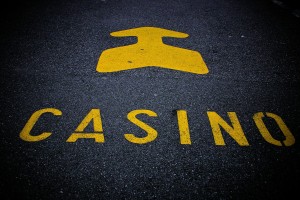 Large betting companies keep merging left and right, don’t they? A little over a month ago, Coral and Ladbrokes, the UK’s largest operators, merged to create a $3.5 billion firm, making them the market leader in the region. For a while, it seemed like that’d be the biggest merger of the year, as far as betting firms were concerned. After all, the creation of the UK’s biggest exchange seems like it’s rather important, doesn’t it? Well, little did we know that it’d be outdone by the creation of the world’s biggest betting company such short time afterwards!
Large betting companies keep merging left and right, don’t they? A little over a month ago, Coral and Ladbrokes, the UK’s largest operators, merged to create a $3.5 billion firm, making them the market leader in the region. For a while, it seemed like that’d be the biggest merger of the year, as far as betting firms were concerned. After all, the creation of the UK’s biggest exchange seems like it’s rather important, doesn’t it? Well, little did we know that it’d be outdone by the creation of the world’s biggest betting company such short time afterwards!
Indeed, two giants of the betting industry, Paddy Power and Betfair – names that even someone who isn’t really all that familiar with betting has most likely heard of – have just announced that they’ll merge to become the market leader worldwide. Funnily enough, when the merger between Coral and Ladbrokes happened, Paddy Power’s Twitter account sent a tweet proclaiming that they would soon merge with Betfair and would rename themselves “Betty Power”. Little did we know that this wasn’t just a mildly amusing joke, but a hint of things to come! Thankfully (or regrettably, depending on your sense of humour), the new company will most likely not be called Betty Power.
From a certain point of view, the union makes sense – both Betfair and Paddy Power are relatively young companies, with Paddy Power (the older of the two) only been around for about 25 years. While this may still seem like a lot, it’s absolutely nothing compared to grandpas like William Hill (1934) and Ladbrokes (1886). Despite their quick development, the only way the two companies could ever come out ahead of their more established and recognizable competition was through a union. But from another point of view, Betfair’s decision to go in bed with a physical bookmaker is rather surprising.
Remember that in 2000, when Betfair first launched, its executive staff famously staged the “funeral of the physical bookmaker”, dressing in black and mockingly mourning the death of their competitors. A lot of people laughed them off (and, honestly, who wouldn’t – it was a rather arrogant move), but during the next 15 years Betfair proved that they could keep their promises, showing the world that online betting was a very, VERY viable and legitimate business. Their market shares jumped higher and higher every year, until we come to today, when the name Betfair is associated with the biggest betting company in the world. Considering the current merger, it’s fair to say that they’ve realized that physical bookmakers aren’t going away completely any time soon, but that doesn’t make Betfair’s achievements in the online space any less commendable.
Shareholders should be quite happy with the deal – Paddy Power is set to receive 52% of the new company’s shares, which means that anyone who has invested in Paddy Power has reason to take out the champaign. As history has shown us, though, good news for investors and shareholders don’t always mean good news for consumers. For example, in the case of Ladbrokes and Coral’s union, customers suddenly found themselves with less options than they originally had, and if those unions and mergers continue the threat of a monopoly, or a state very close to it, is a very real one, especially when considering just how difficult it is for new companies to break into the business and survive their first year (let’s just say, not everyone can stage a mock funeral for the competition at their opening).
On the other hand, it’s important to note that while Paddy Power has an online division, it’s primarily a physical bookie, with booths all over the world. Meanwhile, the exact opposite is true for Betfair. While Betfair employs 2000 people, the majority of them are working on their online services. Considering the nature of this merger, it doesn’t take a genius to figure out that the plan is probably to have Betfair handle the online division while Paddy Power will be able to expand on ground, meaning that both companies win. As for the players, the ones who prefer the land-based approach will still be able to place their bets in a physical bookie while the web lurkers can still keep using Betfair for their betting entertainment. While there is a certain amount of room for risk, for the most part it seems like the companies know what they’re doing.
It’s very important to note that Betfair is a rather beloved site, giving thousands of bettors located in places without bookmakers a chance to place legal bets on a wide variety of sports events. Not only did Betfair facilitate the increase of online bookmaking by proving it to be a valid (and largely untapped) market, it also often provided the best odds and rates. Even after adding a Premium Charge to its service (a tax of 20% on large winnings), which according to a representative was absolutely necessary in order to keep the site profitable (which could be another reason for the merger), Betfair still remained the most popular choice not only in its native UK, but worldwide. We’re just going to have to wait and see if its union with Paddy Power will respect that legacy, though so far things seem rather promising.